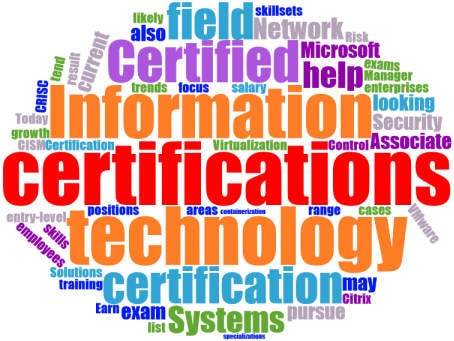Overview of the IT Certification
IT certifications are educational programs that train and validate the abilities to use technologies. Most professional jobs in technology require a person to have these certifications. Such certifications show that one has certain technical skills and can be able to work with a certain kind of software or hardware. Given the dynamic nature of technology, this certification has to keep evolving. It ensures the professionals are in a capacity to handle the current technology with all the modern challenges in the IT world.
Need for Continuous Learning
The technology sector is continually changing, with new tools and methods being invented very often. What is relevant today can actually become antiquated very fast. If they have to remain relevant and competitive at the same time, IT certifications must keep evolving. This, in turn, means the content in the courses must remain current with the technologies and methods developed recently. This basically makes sure that professionals keep at the peak of their skills and knowledge, hence making them very valuable to their employers.
Integration of Emerging Technologies
With advances in newer technologies such as artificial intelligence, machine learning, and blockchain, IT certifications should involve those. Knowledge of these technologies allows a student to apply for work in a much better job market and to take up leading-edge projects. Future IT certifications will most likely be in this line, preparing learners for what they need to succeed in a tech-driven future.
Move to Learning Management Systems
These professional courses have made e-learning most interesting, especially in the IT environment. Through these courses, many IT professionals and developers will be afforded the much-needed freedom for training because e-learning with proper high-quality courses can now take place from all over the world at any time of the day. In most cases, the courses offered online are very lively as the online platforms also embed interactivity; for example, through simulations and live coding exercises.
Adapting Examination Methods
Even the ways of measuring knowledge through IT certifications are also changing. In many of the traditional exams, there was no possible way to measure how much this knowledge could be applied in real-life situations. This might lead in the future to far more practical and hands-on work on projects and way less of a conventional type of test in assessment. This way, it will ensure that what has been learned is not merely knowledge but also the capability to apply it.
Security and moral practices
IT should concentrate on cybersecurity and ethics in the certification process. This is quite relevant to study about data protection and the ethical issues surrounding technology use. It, in fact, goes on to ensure that the professionals in IT would be prepared to address sensitive information and make informed decisions on issues relating to user privacy and data integrity.
Improving Teamwork
It is not only technical, though. As projects get more complex and global in nature, the ability to work in teams that are full of diversity becomes very key. The future IT certifications, including the new ones on the horizon, shall come heavily on the content of communication and teamwork, grooming one to effectively work in these diverse and distributed teams.
Personalize and Customize
As IT continues to grow, it too demands some specialty areas. For further certifications, in the future, there is likely to be more options for customization, such that the learner can put his focus on the career interests in specifics. This could be in specialization areas like cloud computing, network security, or even data analysis, among others.
LIFELONG LEARNING AND REC
As the pace of changes in technology is so dynamic, there is no way a one-time learning process could be sufficient. Practitioners of information technology will have to be involved in lifelong learning to be and stay relevant. This may have to be reflected in certifications, where periodic updates or recertifications may have to be sought to keep the practitioner up to date with new technologies and methodologies. Preparing for Management Roles As IT professionals mature in their career, they are likely to face increased leadership responsibilities. Future IT certifications need to incorporate leadership and management modules relevant to this need. This is actually very important because tech professionals almost always move up to lead teams or departments.
Conclusion and Recommendations IT certifications have to be constantly revised to keep themselves current and relevant in the fast, dynamic technological world. The same has to be upgraded and made current with the changes in the technologies, methods of teaching, and techniques of assessment. Changes in the certifications make sure that IT professionals meet the demands of their careers and grow further. If you are prepared to be thoroughly prepared in a small period of time to clear any of the IT certification exams with good grades. Then Pass4Future could be your best source. Their products are designed to help learners in the minimum possible time so that they can completely digest the material with a very high success rate in the examination. Pass4Future is the best choice for anybody looking for successful, efficient, and effective IT Certification test preparation.

